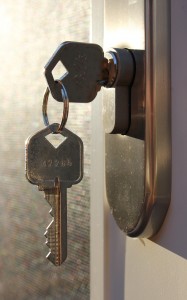Buying your first home will be one of the most memorable moments of your life. Before your Realtor ever shows you a listing, you should prepare yourself to be the best buyer and future home owner possible.
What’s your savings bottom line?
Aside from the necessary down payment, do you have a healthy savings account balance? Closing costs often surprise parties on both sides of the table. Aside from actual closing costs and down payments, do you have an emergency fund you can tap should the roof spring a leak or one of the appliances needs to be replaced sooner rather than later?
Find your realistic price range.
Mortgage pre-approval and a realistic price range can be two very different things. Just because you can pre-qualify for a mortgage of $500,000 doesn’t mean you can afford a home with the same asking price. Ruthlessly examine your budget to see how much of a mortgage payment and associated monthly home costs you can comfortably afford. Account for every cent you’ll spend over the course of a month and ensure you’ll have money leftover to do things like buying groceries and putting gas in your car.

Are you pre-approved?
Speaking of mortgage pre-approval, where is yours? A pre-approval letter will tell you the maximum amount of money a mortgage company is willing to lend you in order to buy a home. Almost every single seller is going to want a mortgage pre-approval before considering an offer. If you don’t have a pre-approval, why not? A pre-approval doesn’t lock in a mortgage rate, term, or note. If you’re unable to obtain a pre-approval for a mortgage company you should examine your financial health. Correct any errors on your credit report, work to reduce your debt to income ratio, and ensure you’re paying all of your debts on time. If you have liens or personal judgments, you will need to resolve these issues as soon as possible.
Know what you want in a home.
This can be a big hang up for many first time home buyers. Do you need multiple bedrooms or want a garage or a home located in a certain school district? Write a list of every feature you could possibly want in a home then prioritize those desires. Having a firm idea of what you really need versus what you want in a home will help your Realtor narrow down potential properties and save you both time.
How stable is your life?
Buying a home is an investment in not only money but time. The general rule in real estate is to expect to wait five to seven years before you recuperate the closing costs in the form of home equity, longer for a sizable return on investment. If your job security is questionable, you may want to hold off on your purchase. You may want to consider the same if you relocate often for your career. While the market is recovering, you’ll be hard pressed to find a profit in “flipping” a home that you could have seen seven and eight years ago.
Reviewing and addressing these topics before you start the search for your future home will make you a strong buyer when you decide the time is right for you.